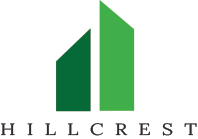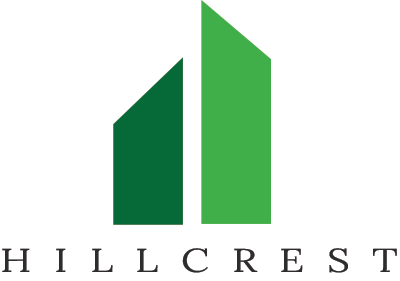Choosing the right HOA vendors is one of the most important responsibilities of any association. Whether it’s landscaping, maintenance, security, or pest control, these vendors aid in the community’s daily function and appearance. With so much at stake, board members must use a thorough selection process.
What are HOA Vendors?
Homeowners associations are responsible for maintenance, operations, and management. While the HOA board primarily spearheads these activities, board members can’t do them alone. Maintenance, for instance, requires the help of professional technicians.
This is where vendors come in.
Vendors can help HOA communities perform optimally. They can take the form of cleaning companies, HVAC technicians, landscapers, and pool maintenance services. Management companies, legal firms, and insurance providers may also serve as vendors.
How to Choose the Right HOA Vendors
Vendors play a crucial role in the success of an HOA community, but boards can’t just pick any vendor available. Not all vendors are made equal. Some offer exceptional services, while others provide substandard ones. Choosing the right vendor can have a huge impact on the association.
Here’s how the HOA vendors selection process should go.
1. Define Needs
Before reaching out to any vendors, the first step is to identify the HOA’s needs. Board members should thoroughly assess the community’s needs and requirements. This usually involves inspecting common areas, reviewing current contracts, and asking residents for feedback.
Some questions to ask include:
- Are there existing vendors underperforming?
- Are there services that are currently unmanaged (e.g., irrigation, janitorial)?
- Does the HOA have seasonal needs that require special attention?
Additionally, it’s important to consider the community’s size and the property’s unique aspects. A large-scale HOA with multiple amenities, for instance, usually has more complex and extensive needs. In comparison, a small community with fewer facilities has different needs.
2. Create an HOA Vendors Matrix
A vendor matrix, also known as a vendor checklist, is a type of scoring system that helps HOAs compare candidates. This makes it easier to evaluate vendors based on certain criteria, such as price, service offerings, experience, etc. This matrix should also list the criteria in order of priority.
From there, the HOA board should create an evaluation timeline. Given the importance of vendors and their services, the board should set deadlines for research, interviews, and even final decisions.
3. Research HOA Vendors
 When looking for vendors, knowing where to start is often difficult. The Internet is always a good place to conduct an initial search. There are plenty of online review platforms, such as Google Reviews and the Better Business Bureau. Even a simple Google search will turn up results in the area.
When looking for vendors, knowing where to start is often difficult. The Internet is always a good place to conduct an initial search. There are plenty of online review platforms, such as Google Reviews and the Better Business Bureau. Even a simple Google search will turn up results in the area.
Another way to conduct a search is to ask for recommendations from other communities. If the board already has a management company in place, the company can connect the HOA to its network of vendors.
Of course, this initial search should already involve preliminary vetting. At a minimum, the board should check if the vendors are licensed and insured. It’s also best if the vendors have no legal issues or have not been reported in the past.
4. Send and Compare RFPs
After narrowing down the list, the next step is to send out the HOA vendors Request for Proposal (RFP). A good RFP should outline the HOA’s expectations in a standard manner. This way, vendors can respond with competitive and comprehensive bids.
Key components of an RFP include:
- Description of the HOA and property layout
- Detailed scope of work
- Frequency of services required
- Contract length and budget expectations
- Deadline for submission
Board members might feel tempted to choose the lowest price range, but cheaper doesn’t always equal better. Some services come cheap because they’re of lower quality. The HOA board should analyze every proposal and consider all aspects. This is where the vendor matrix also comes in handy.
5. Interview and Vet Candidates
 Before making a final decision, the HOA board should set up an interview for the top 2 or 3 contenders. An interview should be done either in person or via video call. This will give the board a chance to gauge the professionalism and communication skills of the candidates. Additionally, an interview allows the board to assess compatibility.
Before making a final decision, the HOA board should set up an interview for the top 2 or 3 contenders. An interview should be done either in person or via video call. This will give the board a chance to gauge the professionalism and communication skills of the candidates. Additionally, an interview allows the board to assess compatibility.
Examples of interview questions to ask include:
- How many HOAs do you currently serve?
- Can you provide references from similar communities?
- What is your response time for emergencies or complaints?
- Do you have a dedicated account manager or team?
It’s also a good idea to ask for references. When interviewing references, the board should ask how long they have worked with the vendor, whether they are satisfied with the service, and their experience with the vendor regarding problems and special requests.
6. Review Contracts
Contracts can make or break any vendor relationship. Before signing anything, board members should review the proposed agreement. It’s also good to ask a lawyer or legal professional to review the contract.
Here are the key areas to review in a contract:
- Scope of Work. The contract should clearly define and detail the scope of work.
- Termination Clauses. How can the HOA terminate the contract if it is unhappy with the service? Is there an early termination fee?
- Renewal Terms. Many contracts have an auto-renew clause. The HOA board should check for this and review the terms.
- Liability and Insurance. The contract should indicate protection for the HOA in case of an accident or damage.
- Hidden Fees. Check for any hidden fees that were previously not discussed.
7. Monitor Performance
 Boards should know that HOA vendor management doesn’t stop once the contract is signed. The HOA board should also continuously monitor and evaluate vendor performance. It’s also normal practice to ask for feedback from residents.
Boards should know that HOA vendor management doesn’t stop once the contract is signed. The HOA board should also continuously monitor and evaluate vendor performance. It’s also normal practice to ask for feedback from residents.
A good vendor should respond to emails and calls quickly and clearly. They should be transparent about any changes to the service or any delays. They should also be adaptable, especially when it comes to emergencies. Other things to evaluate include professionalism, service quality, and commitment.
The Final Word
Choosing the right HOA vendors is more than picking the lowest bid or the biggest name. Board members should make sure their vendors align with the needs and values of the community. In addition, good vendors consistently deliver high-quality results and excellent customer service.
Hillcrest offers HOA management services to Chicago communities. Call us today at 630-627-3303 or contact us online to request a proposal!
RELATED ARTICLES:
- Condo Plumbing Issues: Repair Responsibilities And Maintenance
- Duties And Responsibilities Of HOA Board Members
- HOA Work Order Management: How To Streamline Maintenance Requests




